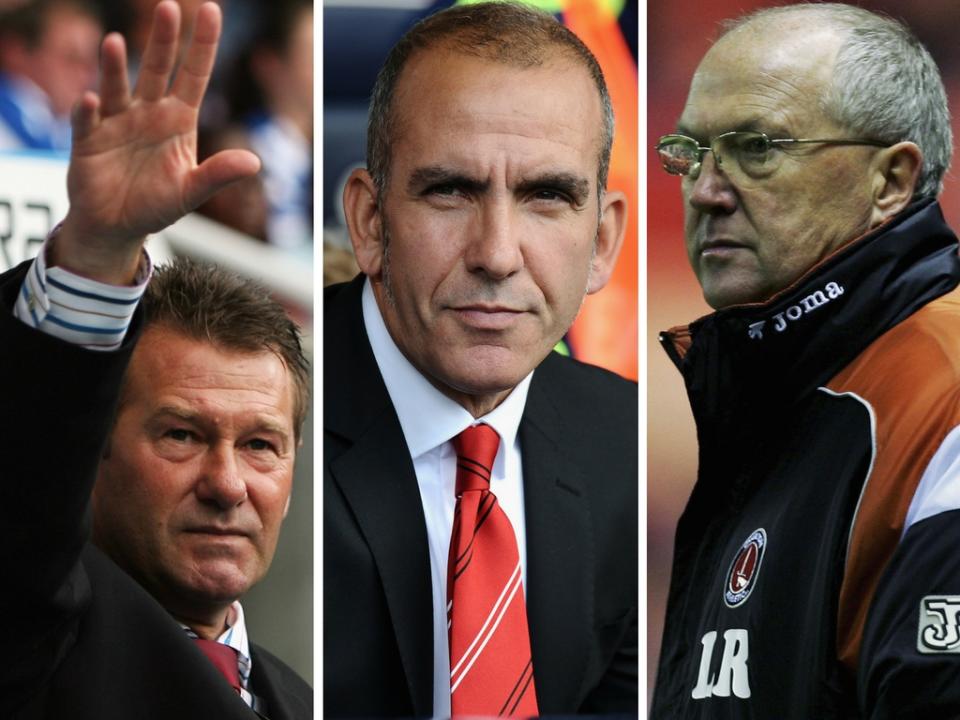#AgainstModernFootball - short-lived managerial reigns

Things that lasted longer than Bob Bradley’s tenure as Swansea City manager – the last series of Great British Bake Off. The filming of Titanic. Forrest Gump’s cross-country run. Tom Hiddlestone and Taylor Swift’s whirlwind relationship. It once rained for 85 days straight in the Pembrokeshire village of Eglwyswrw, the exact length of Bradley’s short-lived stay in South Wales.
Indeed, the American became the latest Premier League manager to be fired and the second Swansea City manager of the season to receive his marching orders. But it wasn’t so much the sacking of Bradley that was most shocking – the Swans’ recent form had been diabolical, after all – it was how little time he was given in the job.
But at just 85 days long Bradley’s reign wasn’t even the shortest Premier League managerial tenure. That dishonour goes to Les Reed, who was in charge of Charlton Athletic for just 41 days and seven games. Paul Sturrock lasted just nine games as manager of Southampton, with Jacques Santini also handed his P45 after just nine matches in charge of Tottenham Hotspur.
Sammy Lee, Chris Hutchings (on two separate occasions), Iain Dowie, Paulo Di Canio, Terry Connor, Rene Meulensteen, Steve Wigley – none of them lasted more than 14 games in charge of a Premier League club, making up the tragic list of the shortest top flight managerial reigns. Bradley is in not so esteemed company.
This is illustrative of the ruthless nature of the modern game. Immediate success isn’t just expected, but demanded. There is no time for projects or even gradual progression. Managers are now asked to work wonders as soon as they first walk through the door. Anything less than that and they are out the door just as quickly, as Bradley’s dismissal at Swansea proves.
The nature of management means that unless you are taking over from Sir Alex Ferguson at Manchester United you are appointed the boss of a losing side. Otherwise a change wouldn’t have been made in the first place. So how is it reasonable to expect a u-turn in fortunes with the hiring of just one individual?
[THE SHORTEST MANAGERIAL REIGNS IN FOOTBALL HISTORY]
[FOUR IN THE FRAME FOR THE SWANSEA JOB]
[WHY BOB BRADLEY NEVER HAD A CHANCE AT SWANSEA]
The Premier League is the ultimate distillation of managerial impatience, with two top flight managers losing their jobs in the past week. And with Mike Phelan, Slaven Bilic, David Moyes and Ronald Koeman all enduring their own struggles they almost certainly won’t be the last Premier League managers to be handed an empty cardboard box before the season is out.
Although it should be noted that such premature managerial dismissals is not solely a Premier League phenomenon. In fact, 55 of the 92 clubs in England’s top four divisions (60 percent) have changed managers in the last year. Some clubs, like Swansea City, have changed managers more than once in that time. Charlton Athletic have changed managers no fewer than five times.
Of course, premature managerial dismissals aren’t strictly a modern football phenomenon. Brian Clough famously lasted only 44 days as manager of Leeds United. Dave Bassett was only Crystal Palace manager for four days in 1984. Football management has always been a precarious vocation.
But what was once the exception is now becoming the norm, that’s the difference. Managers have never before been on a shorter leash and Bradley’s sacking this week demonstrates how the game has changed, even in the last few years.
Once considered one of the shrewdest clubs in the Premier League, Swansea City have now succumbed to the waste culture of European football’s most reckless division. They have become reflective of their surroundings. They are no longer the exception, instead now the perfect epitome of the very thing they not so long ago rejected.
In retrospect, Swansea City should never have sacked Garry Monk, a manager who is now proving himself at Leeds United after himself being prematurely dismissed at the Liberty Stadium. But this is the effect of the inflated revenue now flowing into the coffers of Premier League clubs. The cost of relegation has never been so high, and so panic is the natural reaction when things start to go wrong.
By thrashing around Swansea have only worsened their situation, just like Derby did back in 2002 by hiring and firing Colin Todd in the same season. Or like Remi Garde at Aston Villa just last season. Derby and Villa were both relegated, Swansea look likely to be next. Itchy trigger finger is more often than not fatal.


